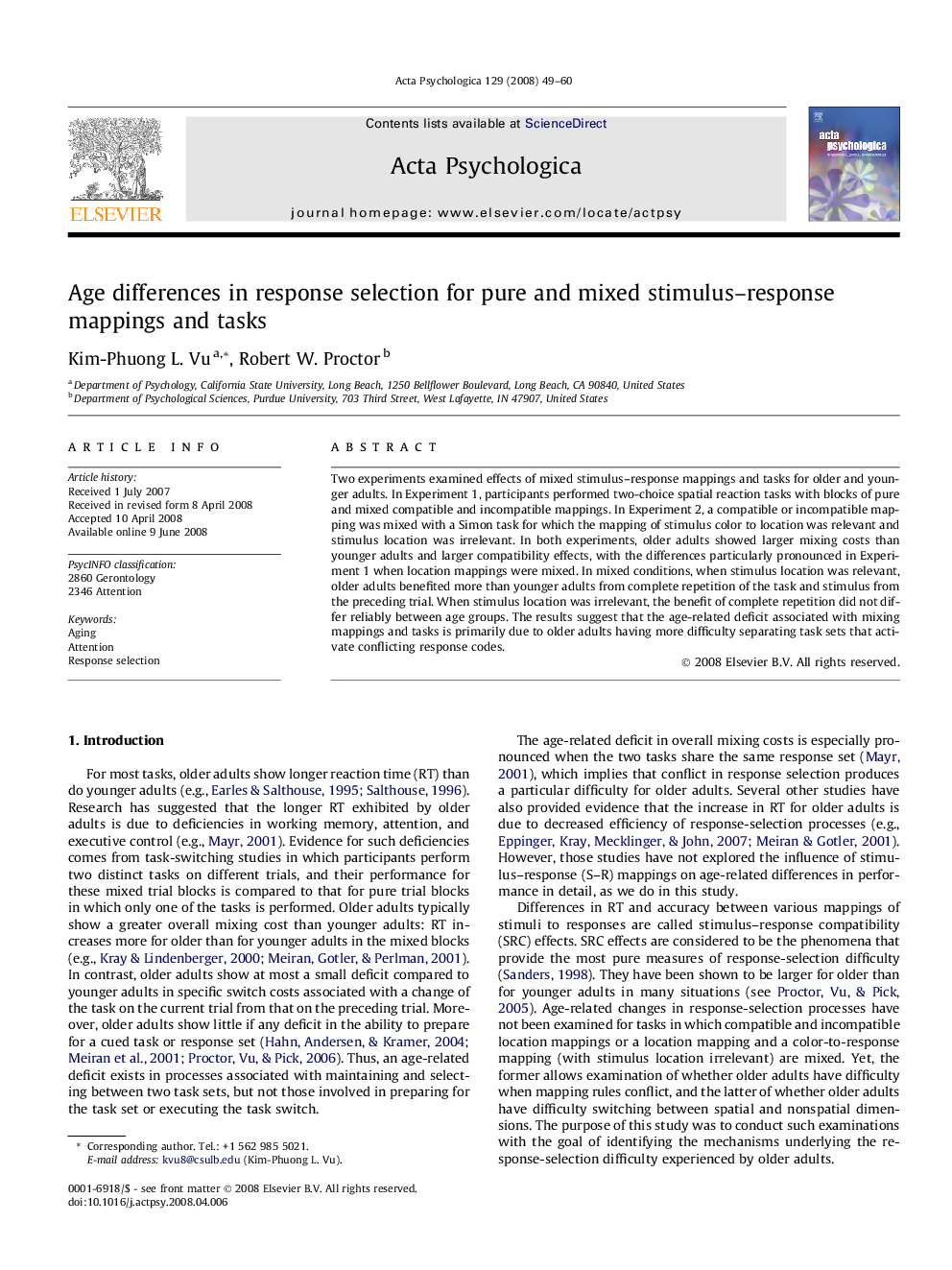| Article ID | Journal | Published Year | Pages | File Type |
|---|---|---|---|---|
| 920394 | Acta Psychologica | 2008 | 12 Pages |
Two experiments examined effects of mixed stimulus–response mappings and tasks for older and younger adults. In Experiment 1, participants performed two-choice spatial reaction tasks with blocks of pure and mixed compatible and incompatible mappings. In Experiment 2, a compatible or incompatible mapping was mixed with a Simon task for which the mapping of stimulus color to location was relevant and stimulus location was irrelevant. In both experiments, older adults showed larger mixing costs than younger adults and larger compatibility effects, with the differences particularly pronounced in Experiment 1 when location mappings were mixed. In mixed conditions, when stimulus location was relevant, older adults benefited more than younger adults from complete repetition of the task and stimulus from the preceding trial. When stimulus location was irrelevant, the benefit of complete repetition did not differ reliably between age groups. The results suggest that the age-related deficit associated with mixing mappings and tasks is primarily due to older adults having more difficulty separating task sets that activate conflicting response codes.
